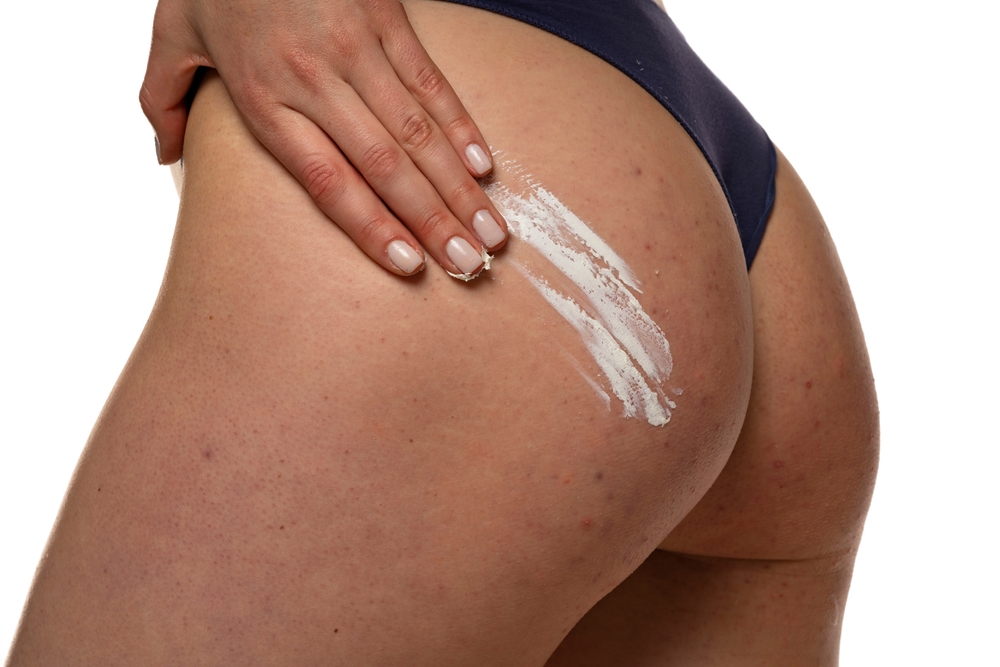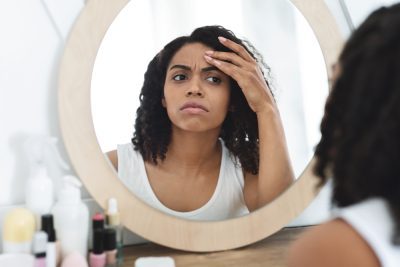While often mistaken for acne, butt acne, or folliculitis, is a common skin condition caused by inflamed or infected hair follicles. This condition typically appears as small red bumps or pus-filled lesions that can be uncomfortable and frustrating. Recognizing the distinction between traditional acne and folliculitis is crucial, as it changes the approach to treatment and prevention.
The condition can affect people of all ages and is often exacerbated by environmental factors, lifestyle habits, and improper hygiene practices. Addressing these issues early can help reduce outbreaks and improve overall skin health.
Root causes revealed
Several factors contribute to the development of butt acne, ranging from environmental triggers to lifestyle habits.
Environmental triggers include prolonged exposure to moisture, friction from tight clothing, bacterial buildup, and insufficient ventilation. These factors create an ideal environment for folliculitis to thrive.
Lifestyle habits also play a significant role. Activities such as sitting for extended periods, neglecting proper post-exercise hygiene, wearing non-breathable fabrics, or delaying underwear changes can exacerbate the condition.
Addressing these causes requires a holistic approach, combining preventive measures and lifestyle changes with targeted treatments.
The treatment blueprint
Managing butt acne effectively starts with hygiene and active treatments. Developing a consistent cleaning routine is the cornerstone of prevention. Showering promptly after workouts, using antibacterial cleansers, and patting the skin dry thoroughly can reduce bacterial buildup. Changing into fresh, breathable underwear daily is essential.
Over-the-counter treatments with active ingredients like benzoyl peroxide, salicylic acid, and glycolic acid are highly effective. These components target bacteria, unclog pores, and gently exfoliate the skin, promoting faster healing.
For more persistent cases, medical-grade solutions or prescription-strength treatments can offer enhanced results. Professional exfoliation and dermatologist-recommended products can also be valuable additions to your skincare arsenal.
The importance of proper clothing
Clothing choices directly impact your skin’s health by influencing friction, ventilation, and moisture retention. Opt for breathable fabrics like cotton and moisture-wicking materials that help reduce irritation and sweat accumulation.
Properly fitted clothing is key to minimizing friction and preventing irritation. Avoid tight, restrictive garments that can trap heat and moisture, especially during exercise. Change out of wet or sweaty clothes immediately to prevent bacterial buildup.
Your workout attire also matters—select materials designed to wick away sweat and keep your skin dry during physical activities.
Long-term management strategies
Consistency is vital for preventing and managing butt acne over time. Maintaining a daily routine that includes cleansing, moisturizing, and gentle exfoliation ensures your skin remains healthy and resilient.
Environmental factors also influence skin health. Keep bedding clean, use hypoallergenic detergents, and manage indoor humidity levels to reduce irritants. Proper ventilation in your living spaces helps maintain a skin-friendly environment.
Preventive measures like monitoring skin changes and addressing contributing health factors, such as weight management and diet, also play a role. These strategies not only improve skin but contribute to overall well-being.
When to seek professional help
Not all cases of butt acne can be managed at home—some require medical intervention. Seek professional advice if symptoms persist despite treatment, if the condition worsens or spreads, or if you experience severe pain, fever, or unusual discharge.
Dermatologists can provide customized treatment plans, prescribe stronger medications, or perform targeted procedures to alleviate severe cases. Professional guidance ensures you address the root cause effectively and safely.
The journey to clear skin takes patience and dedication. By understanding the underlying causes of butt acne and following proven treatments and prevention strategies, you can significantly improve your skin’s appearance and health. Remember that every individual’s skin responds differently to treatments, so finding the right combination may take time.
Stay consistent with your routine and seek professional help when necessary to achieve long-lasting results. With care and attention, clearer, healthier skin is within reach.














